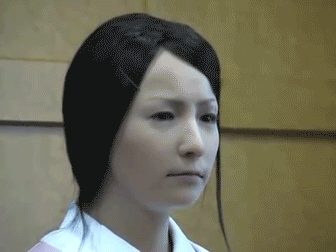“We face a future in which robots will test the boundaries of our ethical and legal frameworks with increasing audacity.” writes Illah Reza Nourbakhsh in his Foreign Affairs article “The Coming Robot Dystopia,” and it’s difficult to envision a scenario in which the pace doesn’t get just faster, cheaper and at least somewhat out of control.
We live in a strange duality now: On one hand, citizens worry that government has too much access to their information–and that’s true–but government is likely tightening its grip just as it’s losing it. Technology easily outpaces legislation, and it’s possible that at some point in the near future even those who espoused hatred of government may be wistful for a stable center.
From Nourbakhsh:
Robotic technologies that collect, interpret, and respond to massive amounts of real-world data on behalf of governments, corporations, and ordinary people will unquestionably advance human life. But they also have the potential to produce dystopian outcomes. We are hardly on the brink of the nightmarish futures conjured by Hollywood movies such as The Matrix or The Terminator, in which intelligent machines attempt to enslave or exterminate humans. But those dark fantasies contain a seed of truth: the robotic future will involve dramatic tradeoffs, some so significant that they could lead to a collective identity crisis over what it means to be human.
This is a familiar warning when it comes to technological innovations of all kinds. But there is a crucial distinction between what’s happening now and the last great breakthrough in robotic technology, when manufacturing automatons began to appear on factory floors during the late twentieth century. Back then, clear boundaries separated industrial robots from humans: protective fences isolated robot workspaces, ensuring minimal contact between man and machine, and humans and robots performed wholly distinct tasks without interacting.
Such barriers have been breached, not only in the workplace but also in the wider society: robots now share the formerly human-only commons, and humans will increasingly interact socially with a diverse ecosystem of robots.•
Tags: Illah Reza Nourbakhsh

